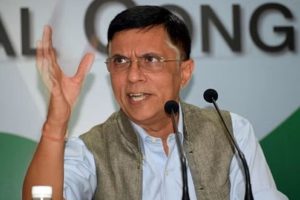UN Secretary-General Antonio Guterres has warned that the world is facing a “pivotal moment” and business as usual could lead to a “breakdown of the world order.” The world must heed his warning. Even though we are not in the midst of a World War, what we have is a world at war. The post-fascist universe is expanding. Democracies too are facing a crisis of electoral legitimacy. Historian Anne Applebaum and British journalist and author Peter Pomerantsev argue that “the end of democracy has already begun”. The world order that has largely kept relative peace and stability is under threat.
Footloose capitalism has given way to what former Greek finance minister Yanis Varoufakis calls “technofeudalism.” Apple, Facebook and Amazon, he contends, have changed the economy beyond recognition. It now “resembles Europe’s medieval feudal system.” To Varoufakis, the “tech giants are the lords, while everyone else is a peasant, working their land for not much in return” When the technological future becomes unpredictable, policy makers drive in the dark. The rules-based world order is constantly fragmenting. Today, there are multiple tipping points in international politics and global development. Multipolarity has increased but multilateralism has decreased.
Advertisement
How do we describe the global order? Is it multipolar? There are some who argue that we are now living in a multimatrixed world. Amitabh Acharya of American University, Washington, asserts that the existing world order is not multipolar but ‘multiplex’. Acharya defines the world order in terms of multiplexity. Multiplex world has four characteristics. First, there is no global hegemony by one or small group of countries. Second, interdependence encompasses governance, sustainable development, security and connectivity. Third, it contains a multilateral global governance architecture. Fourth, cultural, ideological and political diversity ensure peace and stability.
Humanity is facing multiple challenges and multiple risks. These risks ~ climate crisis-related and unregulated technological advances ~ are interacting with geopolitics in increasingly unpredictable ways. The ever-widening gulf bet ween the rich and the rest isn’t accidental. Governments world wide are making deliberate political choices that enable and en courage this distorted concentration of wealth, while hundreds of millions of people live in poverty. A fairer economy is possible, one that works for us all. What is needed are concerted policies that deliver fairer taxation and support for everyone, not just the privileged. There is another concern. The world has become transactional and less ideological. It prioritises development, partnerships and coalition building but not human rights and democracy, etc. An epochal tectonic shift is on the horizon. German Chancellor Olaf Scholtz calls itzeitenwende (historical turning point).
China and India are not the only ones to assert themselves on the world stage. There are many powers who are positioning themselves for a bigger role. As Sergey Radchenko, a historian of the cold war, says, “We are moving more in the direction of diffuse centres of power.” The two blocs system is not acceptable to most. Another analyst describes this shift as a “coming of age” process of development. It means attainment of prominence and what is being increasingly used as “actorness” in the context of the EU’s international functioning. Are we witnessing cold war 2.0? The world looks more like the 1930s. American historian Paul N Hehn called that period a “low dishonest decade” which triggered conflict and uncertainty. Economic forces are again reshaping many basic relationships. The rise of tech giants has created many new challenges.
Elon Musk has warned that there will come a point where no job would be needed. One doesn’t know whether to laugh or cry when AI godfather Geoffrey Hinton advises us to “get a job in plumbing.” Such alar mism steers us away from both an egalitarian and libertarian dream. The Global South faces its own set of challenges. The old matrix of donor-recipient relationships is no more relevant. No donor only gives and no recipient only receives. Given the AI onslaught, no institution will be future safe. Over-connectedness poses multiple challenges. What disaster researchers call a “tightly coupled system” is true of diplomacy and multilateral relations. Multilateralism is a means to an end, but it is also an end in itself. Multilateralism fa ces serious threats. Those who are attacking multilateralism today were the ones who created these institutions.
Only through multilateralism, can slowing global economic growth, recurring global financial crises and growing inequality be addressed. The world needs a new multilateralism which is shared prosperity. Multilateralism alone provides the political impetus for global cooperation and comprehensive dialogue which is the pragmatic template for enhancing global governance. The Global South is also divided. Various regional platforms hold discussions in separate bubbles. As a matter of fact, spaces for true dialogue and cooperation are narrowing by the day. For example, the fierce competition among countries to join the BRICS poses a new set of problems. If you oppose a country’s entry, you may be prepared to face its consequences bilaterally. We need an army of ideas.
The Global South needs a radical manifesto for our time. Building a new world order requires not merely diplomacy or strategic allies but a blueprint for a new world ~ climate, future of work, migration, AI etc. Another agenda should be the future of food; what we eat, where it comes from and how we get it needs to be re-imagined. We need a new world order which will prioritise the challenges of shared prosperity and the policies that could bring about a more inclusive economy. The Global South must create institutions and mechanisms that will ensure technologies benefit all and reduce the gap between emerging and developed economies. We are living in a poly-crisis.
The world is facing the ssimultaneous and overlapping crises concurrently. The Global South has a world to win. The enormity of the task requires even bigger ideas, strategies and traction. No more nibbling around the edge. It is time to seize the moment. The Global South needs to reimagine our world and reimagine world organisations. It needs to be compos mentis, able to think clearly. It must also become a geographical disruptor. At pivotal moments, not just poets and philosophers but also organisations and institutions must invent the age and invent the metaphor.
(The writer is director, Institute of Social Sciences, Delhi)











